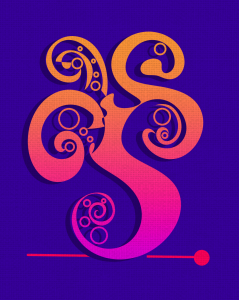
Food is simple, right? But consider. A predictable predicament. Friends, family, work, any social situation. One person wants to eat Chinese. Another one wants Mexican. A third Italian, a fourth American fast food. One is vegetarian. One is vegan. One is pescatarian. One is an environmentalist. One is a health fanatic. How to choose?
When I was a simple and trusting child, the idea of choosing what to eat in any meal I had never entered my mind. I would simply just eat whatever my mother gave me. Even if I didn’t like what was made, I had to eat it. Rebellion or the imagination of something different wasn’t even present as a remote possibility. We had a rule that we could only get up from the table if we finished the food that was in front of us. It was only when I was a teenager that I started eating what I wanted and chose to eat, and, even then, my mother still largely dictated what was on the table.
Fast forward to the present moment for most people, the ones that haven’t stubbornly (ignorantly?) remained the child I was. The food landscape has completely changed. There is more choice, a bewildering number of cosmopolitan world food choices. Authoritative discourses around food abound. There are scientific demands for a five a day and various health and ‘brain foods’. Add to this all the potential negatives surrounding the idea of food nowadays: the nagging thought of impending environmental crisis and the adult awareness of global systems of inequality and unfairness in terms of food production. Not to mention the atrocious conditions of suffering of animals led to the slaughter. Food choices are not so simple any more. Moreover, they are heavily and unavoidably politicised and tied to feelings of guilt and moral reprehensibility. Is the meal I’m going to eat going to result in the disinheritance of the children to come, the taking away of the good things of the world? Has this chocolate bar been produced by modern day slaves?
The amount of thinking time given to decision-making around food choices has exponentially increased since I was a child, in the span of thirty years or so. What has changed? When I was a child, I could simply trust the older generation and eat what they gave me. Now the scenario has changed. We cannot trust the older generation any more. New knowledge has usurped the system of deference and obedience. There has been a veritable explosion of words around the idea of food. We are faced with the existential crisis of knowing, of being forced into independence and moral responsibility. Our food choices have become difficult ethical choices that cry out for education and knowing. We have to research everything that we eat before we put it into our mouths. It is no longer a question simply of what tastes good, what is traditional.
Is this emphasis on decision and choice, the time it takes, such a burden? There are some positives. In many ways, the current burden of decision over food choices takes us back to the primordial past of humanity. Then, when the human race was exploring what was edible and what was not, there was a massive risk. What one ate could have made one sick, even fatally so. But ultimately, the courage and hardihood required to chew on anything and everything led to the knowledge of what could be eaten and what was useful and productive to eat. Like then, the current situation of hard food choices and risks promises to lead to a better tomorrow and more sustainable and healthier food, as well as a fairer food community. For those that have not remained the child I once was.
